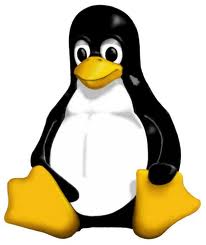Sure, unlike me, you’re probably not reading this on a Linux desktop–Mint 10 for those who care about such things–but do you use Google, Facebook or Twitter? If so, you’re using Linux. That Android phone in your pocket? Linux. DVRs, network attached storage (NAS), trade stocks? Linux, Linux, Linux.
I think one of the most telling stories about Linux this year came from a friend of mine, Joe “Zonker” Brockmeier, who told me of a friend who said “Linux was too hard.” When Zonker asked him about his Android phone, he replied something like, “Oh, but Android is easy. It’s not Linux!”
Oh my. Android is indeed Linux, as is so many other devices and Web services and sites. Open-source developers have just gotten very good at hiding the dirty technical details from you. It just took them a lot longer than it did for the Mac OS X designers to hide its Mach, OpenBSD, and FreeBSD Unix roots from users. In the last few years though, they finally got the hang of it.
We’re going to see this trend grow only stronger in 2011 with the rise of Google’s Linux-based Chrome OS. That’s why Chrome OS is my first big story of 2010.
1. Chrome OS Finally Arrives
Google took its own sweet time about getting Chrome OS out the door, but Chrome OS is finally, sort of, here. Is Chrome OS, with all its applications based on the Web, for people like you, who read ZDNet, or me, who cut his Unix/Linux teeth on Version 7? No, of course not. But, would it make a great operating system for office-workers, non-tech savvy people, and students. Yes, yes it would. I predict that, by early 2012, Chrome OS, while not a traditional, fat-client desktop operating system, will become a major desktop contender.
2. Red Hat: The First Billion-Dollar, Open-Source Company
I predicted earlier this year that Red Hat would be the first billion-dollar open-source company. I think I blew my prediction though. I thought it would take more than a year–it looks more like Red Hat will become the first billion-dollar Linux company in 2011. Indeed, when it comes to servers, Red Hat is getting ready to take on Microsoft.
3. Oracle Remakes Sun’s Open-Source Legacy
Sun had a long and odd history with open source. On balance, Sun was good for open source. Oracle is also an open-source company, but Oracle only supports open-source if it directly contributed to Oracle’s bottom line. So it is that Oracle has killed off OpenSolaris; has forced Apache into an open-source Java fork; and effectively forked OpenOffice into the Oracle branch and the one that most OpenOffice developers now support, LibreOffice.
4. Attachmate (Who?) buys Novell
Attachmate is in the process of buying Novell. Well that’s the official story anyway. I don’t buy it. Personally, I see, Microsoft pulling the strings on this deal. SUSE Linux and openSUSE will continue, but when the deal is said and done early next year, I see Novell as being Microsoft’s de facto Linux.
No, I don’t see Novell acting like a branch of Microsoft. Instead I see Novell ending up like Citrix Systems, a remora fish that follows and profits from the great white shark of Microsoft’s business moves.
5. Ubuntu tries to revitalize the Linux desktop
Canonical, Ubuntu Linux’s parent company, has been focusing on the server and the cloud, but they also recently renewed their desktop commitment with the introduction of Unity as its primary desktop interface.
Besides being an interesting new take on how to make the Linux desktop as friendly to new users as the Mac OS X’s Aqua interface. Canonical also plans on using Unity as its smartphone and tablet interface.
Unity won’t be for everyone. Old-school Linux users won’t like it much at all, but it’s not meant for us. Unity is meant to be a new, easy-to-use Linux desktop for those same people who now use Android and don’t realize that Linux is under its shiny surface. Considering how well Android has worked out for Linux phone users, I know Ubuntu is hoping the same thing happens for tomorrow’s Linux desktop users. I’ll be watching closely to see how well it works out.
Read More Click Here









0 comments:
Post a Comment